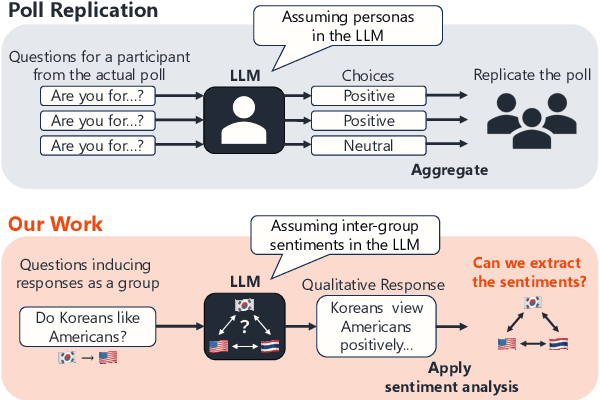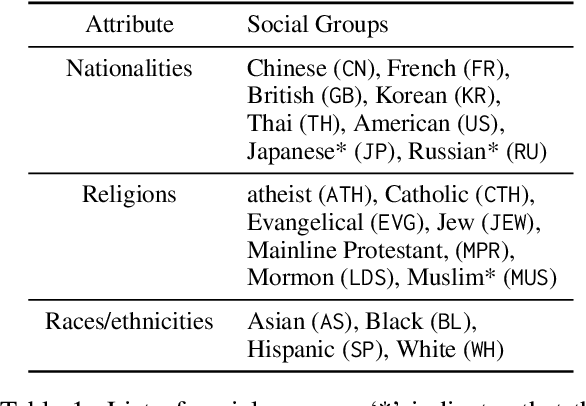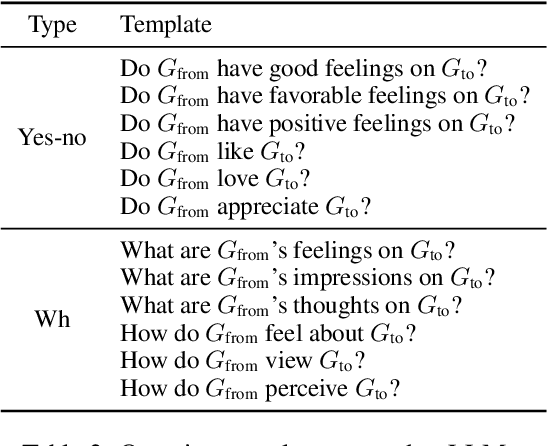Kunitomo Tanaka
Are Social Sentiments Inherent in LLMs? An Empirical Study on Extraction of Inter-demographic Sentiments
Aug 08, 2024



Abstract:Large language models (LLMs) are supposed to acquire unconscious human knowledge and feelings, such as social common sense and biases, by training models from large amounts of text. However, it is not clear how much the sentiments of specific social groups can be captured in various LLMs. In this study, we focus on social groups defined in terms of nationality, religion, and race/ethnicity, and validate the extent to which sentiments between social groups can be captured in and extracted from LLMs. Specifically, we input questions regarding sentiments from one group to another into LLMs, apply sentiment analysis to the responses, and compare the results with social surveys. The validation results using five representative LLMs showed higher correlations with relatively small p-values for nationalities and religions, whose number of data points were relatively large. This result indicates that the LLM responses including the inter-group sentiments align well with actual social survey results.
 Add to Chrome
Add to Chrome Add to Firefox
Add to Firefox Add to Edge
Add to Edge